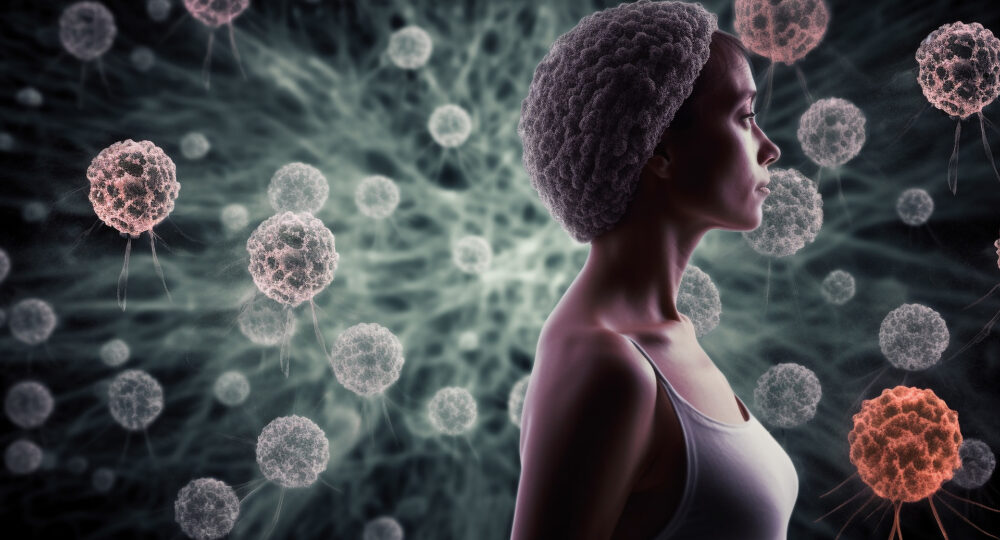
The Microbiome and Mental Health: A Hidden Connection
Recent years have seen a surge in studies delving into the microbiome’s impact on the brain; a relationship often called the gut-brain axis. This bi-directional communication system involves various pathways, including the vagus nerve, immune system, and hormonal routes, through which the gut and brain interact continuously. Emerging research reveals this interaction is far more significant than previously understood, particularly in mental health.
Scientists have begun understanding how the microbiome can influence psychological well-being and contribute to mental health disorders. For instance, certain strains of gut bacteria are found to produce neurotransmitters like serotonin and gamma-aminobutyric acid (GABA), which play critical roles in mood regulation. Alterations in the composition and diversity of gut microbiota have been associated with a range of mental health issues, including depression, anxiety, and stress-related disorders.
These groundbreaking discoveries are reshaping our understanding of mental health, suggesting that the microbiome could be a key player in developing and treating mental health conditions. This has opened new avenues for therapeutic interventions, such as probiotics, prebiotics, and dietary modifications, to restore or maintain a healthy microbiome. As research in this field continues to evolve, it promises to revolutionise mental health care, offering more holistic and integrative treatment approaches that consider the whole body, including the trillions of microbes that call it home.
Understanding the Microbiome
With its vast diversity and complexity, the human microbiome is integral to numerous aspects of human physiology. Its influence spans from digestion and immunity to impacting our neurological processes, illustrating these microorganisms’ profound and multifaceted role in our lives.
The human microbiome is astonishingly varied in terms of diversity, with estimates suggesting the presence of thousands of different microbial species. Each individual’s microbiome is unique and influenced by genetics, diet, environment, and lifestyle. This diversity is not only a hallmark of the microbiome but is also crucial for its functionality.
When it comes to bodily functions, the microbiome is a key player. In digestion, these microbes assist in breaking down food, extracting nutrients, and even synthesising vitamins that are vital for our health. They help metabolise otherwise indigestible compounds, significantly regulate metabolism, and maintain a healthy weight.
The microbiome’s role extends to the immune system, a first line of defence against pathogens. It helps educate and modulate the immune system, ensuring a balanced immune response. A healthy microbiome can prevent overreactions leading to allergies or autoimmune diseases.
In recent years, the impact of the microbiome on neurological processes has garnered attention. The microbiome can influence brain function and behaviour through the gut-brain axis, a communication network that includes neural, hormonal, and immunological pathways. It affects mood, stress responses, and cognitive abilities, suggesting a profound interconnectedness between gut microbes and brain health.
The Gut-Brain Axis: A Two-Way Street
The gut-brain axis represents a remarkable communication network that links the enteric nervous system of the digestive tract with the central nervous system, which includes the brain. This complex system involves a multi-faceted dialogue between the gut and the brain, facilitated by various biological pathways, including neural, hormonal, and immunological channels.
Neurologically, the vagus nerve plays a crucial role in the gut-brain communication. It is a direct line of neural transmission, transmitting signals to and from the gut and the brain. This bidirectional flow of information allows the brain to influence intestinal activities and, conversely, allows the gut to relay its status back to the brain.
Hormonally, the gut-brain axis involves an intricate interplay of hormones and neurotransmitters. The digestive system is not just about processing food; it also functions as a chemical factory, producing a range of substances that influence brain function. Gut bacteria are instrumental in this process. They can produce and modulate various neurotransmitters and neuroactive compounds, including serotonin, dopamine, and gamma-aminobutyric acid (GABA), all of which regulate mood, anxiety, and overall brain function.
Recent research has shed light on the profound impact of gut bacteria on brain health. Studies have found that changes in the composition of gut microbiota can influence the production of neurotransmitters, thereby affecting mental processes and emotional states. For instance, certain strains of gut bacteria have been shown to produce serotonin, often dubbed the ‘happy chemical’, which is crucial for mood regulation and well-being.
Additionally, research indicates that gut bacteria can influence the brain’s response to stress and play a role in the development of neurodegenerative and psychiatric disorders. This growing body of evidence underscores the significance of the gut microbiome in mental health, opening new avenues for potential treatments that target the gut-brain axis.
The gut-brain axis represents a complex and dynamic interplay between the digestive system and the brain, profoundly influencing our physical and mental health. The ongoing discoveries in this field are reshaping our understanding of how the gut microbiome can be a pivotal factor in brain function and overall well-being.
The Microbiome’s Role in Mental Health
Recent studies have significantly advanced our understanding of the relationship between microbiota composition and mental health disorders. These findings highlight a strong correlation between changes in the gut microbiome and the development or severity of certain psychiatric and neurological conditions.
One landmark study published in the “Proceedings of the National Academy of Sciences” revealed that individuals with major depressive disorder (MDD) exhibited distinct microbiota compositions compared to healthy control subjects. This study found reduced levels of certain bacteria, such as Faecalibacterium and Coprococcus, known for their anti-inflammatory properties, in those with MDD. This alteration in the microbiome composition was linked to the severity of depressive symptoms, suggesting a potential role of the gut microbiome in modulating mood disorders.
Another significant research, featured in the “Journal of Psychiatric Research,” investigated the gut microbiome’s role in anxiety disorders. The study observed that patients with anxiety had differing gut bacterial profiles compared to non-anxious individuals. Notably, there was a decrease in the diversity of the gut microbiome in anxious individuals, which has been hypothesized to affect gut-brain communication, potentially influencing anxiety levels.
In the realm of autism spectrum disorder (ASD), a study in the “Gut Microbes” journal provided compelling insights. Researchers noted distinct microbiome compositions in children with ASD, marked by a reduced presence of beneficial bacteria like Bifidobacterium and Prevotella. This shift in the gut microbiota was associated with gastrointestinal issues common in ASD and suggested a link between gut health and neurodevelopmental disorders.
These studies point to a crucial interplay between the gut microbiome and mental health. The changes in microbiota composition observed in individuals with mental health disorders open up new possibilities for therapeutic interventions targeting the gut microbiome. As research in this area grows, it holds promise for more personalized and effective treatment strategies for various mental health conditions rooted in understanding the intricate gut-brain connection.
Probiotics, Prebiotics, and Mental Health
Exploring probiotics and prebiotics as potential tools for managing and improving mental health is a burgeoning field of research, reflecting a broader interest in the gut-brain axis. Probiotics, live beneficial bacteria, prebiotics, and non-digestible fibres that feed these bacteria are being studied for their potential to influence mental health positively.
Recent studies have begun to uncover the mechanisms through which probiotics and prebiotics may impact mental health. The primary theory revolves around “psychobiotics,” a term referring to probiotics and prebiotics that, when ingested in adequate amounts, can produce a health benefit in patients suffering from psychiatric illness. These psychobiotics are thought to influence mental health through several pathways, including the modulation of the gut microbiota, reduction of inflammation, and direct production of neurotransmitter-like substances.
A notable study published in the “Journal of Psychopharmacology” investigated the effects of a specific probiotic strain on reducing symptoms of depression. The study found that participants who took the probiotic experienced significant improvements in mood, suggesting a direct link between gut health and mental well-being.
Another research avenue focuses on the role of prebiotics in mental health. A study in “Brain, Behavior, and Immunity” showed that dietary prebiotics can alter the gut microbiota and produce a therapeutic effect similar to antidepressants. The prebiotics enhanced the growth of beneficial bacteria, affecting neurotransmitter levels related to mood regulation.
Despite these promising findings, the current state of research is still in its nascent stages. While growing evidence supports the mental health benefits of probiotics and prebiotics, the field requires more extensive and rigorous clinical trials to ascertain the efficacy, dosage, and specific strains or types that are most beneficial.
The Impact of Diet on the Microbiome and Mental Health
The intricate relationship between diet, the gut microbiome, and mental health is an area of scientific inquiry that has garnered substantial interest in recent years. Emerging evidence suggests that what we eat significantly influences our gut microbiota, which impacts our mental well-being, highlighting a fascinating interplay between nutrition, gut health, and brain function.
Diet is a critical determinant of the composition and diversity of the gut microbiome. Foods rich in fibre, like fruits, vegetables, and whole grains, encourage the growth of beneficial bacteria. These microbes ferment dietary fibre, producing short-chain fatty acids like butyrate, known for their positive effects on gut health and inflammation reduction. On the other hand, a diet high in processed foods, sugar, and saturated fats can lead to a less diverse and imbalanced microbiome, which has been linked to negative outcomes for mental health.
Significant research illustrates the impact of diet on mental health through the gut-brain axis. A study in “Brain, Behavior, and Immunity” demonstrated that a Mediterranean diet, high in vegetables, fruits, nuts, and fish, is associated with a lower risk of depression. The proposed mechanism is the diet’s positive effect on gut microbiota diversity and the consequent reduction in systemic inflammation, a known factor in the development of depressive disorders.
The impact of diet on the microbiome and mental health is profound and multifaceted. A balanced, nutrient-rich diet nurtures a healthy gut microbiome and emerges as a potential strategy for improving mental health outcomes. As research in this area continues to evolve, it holds promise for more holistic approaches to mental health care, emphasizing the importance of dietary choices in maintaining physical and mental well-being.
Beyond the Gut: Other Microbiomes and Mental Health
While the gut microbiome garners significant attention for its impact on mental health, other bodily microbiomes, like those of the skin and oral cavity, also play intriguing roles in our overall well-being. These diverse microbial communities are not isolated systems but interact with the body and potentially influence mental health.
The skin microbiome, a complex ecosystem of bacteria, fungi, and viruses, is the body’s largest organ and the first defence against environmental factors. Emerging research suggests a connection between skin microbiota and stress-related conditions. For instance, stress can alter skin microbiota composition, which may affect skin barrier function and contribute to skin disorders such as eczema or psoriasis. These skin conditions can have psychological effects, impacting an individual’s mental well-being and quality of life.
Similarly, the oral microbiome, which includes bacteria, fungi, and viruses in the mouth, uniquely interacts with mental health. Research indicates that oral health, particularly gum disease, is associated with mental health conditions, including anxiety and depression. The proposed mechanism involves the inflammatory response: poor oral health can lead to systemic inflammation, a known risk factor for mental health disorders.
Moreover, studies have explored the bidirectional relationship between the oral microbiome and stress. Stress can alter the oral microbiome, leading to oral health issues, while oral inflammation can potentially contribute to stress and anxiety, creating a cyclical impact on mental health.
Challenges and Future Directions in Research
While burgeoning with potential, microbiome research faces several significant challenges that shape its current state and future directions. One primary challenge is the complexity of the microbiome itself. The human microbiome comprises trillions of microorganisms, each with its genetic material. This complexity makes it difficult to pinpoint specific microbial changes and their direct effects on human health.
Another hurdle is establishing causality. Much of the current research is observational, showing associations between microbiome alterations and health conditions but not proving cause and effect. This limitation raises questions about whether changes in the microbiome are a cause of disease or a result of it. Future research should focus on longitudinal studies and clinical trials to establish causal relationships more clearly.
Moreover, individual variability presents another challenge. Each individual’s microbiome is distinctive and affected by genetics, diet, environment, and lifestyle. This variability makes it difficult to generalise findings and develop one-size-fits-all therapeutic interventions. Considering an individual’s unique microbiome composition, personalised medicine approaches will likely be crucial in future research and treatment.
Speculating on future research directions, we can expect a more in-depth exploration of the microbiome’s role in a wider range of diseases beyond the gut-related or metabolic disorders traditionally associated with it. This could include more research into the gut-brain axis and its implications for neurological and psychiatric disorders.
In terms of therapeutic applications, the future might see the development of more targeted probiotics or microbiome-based therapies. These could be tailored to individual needs, addressing specific microbiome imbalances. Additionally, faecal microbiota transplantation, which has shown promise in treating conditions like Clostridioides difficile infection, might be explored for other conditions linked to microbiome dysbiosis.
While microbiome research faces considerable challenges due to its complexity and individual variability, the field is ripe with potential. Future research directions and therapeutic applications will likely deepen our understanding of the microbiome’s impact on health and open new avenues for treating various diseases with a more personalised approach.
References:
- The Psychobiotic Revolution by Scott C. Anderson, John F. Cryan, and Ted Dinan – it explores the concept of ‘psychobiotics’, a term for probiotics that can improve mental health and groundbreaking research on how the gut microbiome influences mood, stress levels, and overall psychological well-being.
- Gut Feelings: The Microbiome and Our Health by Alessio Fasano and Susie Flaherty – provides a comprehensive look at how the microbiome affects not just the gut but the entire body, including the brain. The book discusses how changes in the gut microbiome can lead to a range of health issues, including mental health disorders.
- Brain Maker: The Power of Gut Microbes to Heal and Protect Your Brain – for Life by David Perlmutter – outlines the vital role that gut microbes play in the health of the brain, discussing how the gut-brain connection can be harnessed for treating neurological and mental disorders.
- The Gut-Brain Connection: How Gut Health Affects Mental Well-Being by Gerard E. Mullin – provides insights about the emerging science behind the gut-brain connection, presenting evidence on how a healthy gut can lead to a healthier mind, and providing dietary recommendations for improving gut health.









